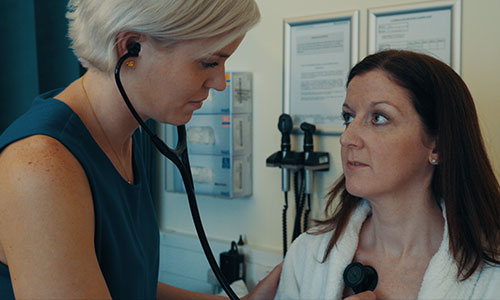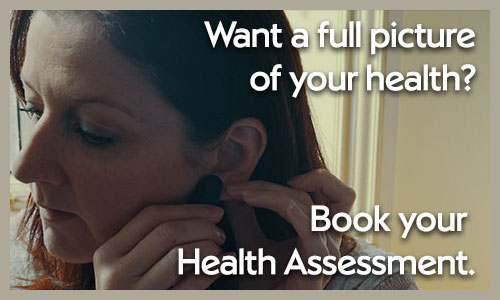Recognising heart attack symptoms in women
- Overview
Research carried out by the University of Leeds and part-funded by the British Heart Foundation recently revealed that women are 50% more likely to be misdiagnosed after a heart attack than men, cutting them off from appropriate care and treatment.
The classic symptom, the classic patient
The stereotypical view of the heart attack victim prevails in our minds as a middle-aged, overweight man who drinks and smokes. He clutches his chest and falls to the ground in dramatic fashion. No one is in any doubt that he is having a heart attack.
In reality, heart attacks don’t always look like this. Tightness or pressure on the chest is the most common sign of heart attack in both men and women, but women sometimes experience a wider range of symptoms that aren’t always recognised as signs of a heart attack.
The other heart attack symptoms women need to know about

- Pain spreading to the arms, neck, jaw, stomach and the upper back. Women may experience pain in one or all of these places at once. It can range from severe pain to simply feeling uncomfortable
- A feeling of indigestion or reflux
- Feeling sick, sweaty, breathless or lightheaded with associated chest pain or discomfort
- General feelings of being unwell, dizziness, fainting or lacking energy could also indicate a heart attack when accompanied by chest pain or discomfort.
Women at risk
Heart disease is still seen as a men’s issue, but it kills twice as many women as the more high profile women’s issue of breast cancer.
The classic risk factors such as being overweight, smoking and having diabetes apply to women as well as men, but women should also know being post-menopausal increases their risk of heart attack. Having a father, brother, sister or mother diagnosed with cardiovascular disease before the age of 65 also increases your risk.
All women over 40 or with concerns about their heart health should have a medical check-up to identify any additional risk factors.
If you think you or someone else is having a heart attack, call 999 immediately.
Last updated Tuesday 27 August 2019
First published on Thursday 8 September 2016


